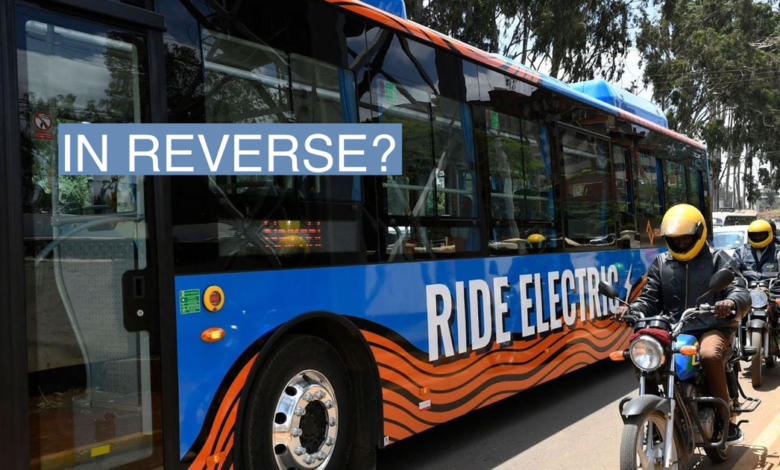New taxes threaten to stifle Kenya’s growing EV sector

NAIROBI — Kenya’s push to introduce new taxes on some electric vehicles and their batteries could stifle growth in the country’s fledgling e-mobility sector, experts have warned.
The country’s new finance bill proposes the introduction of value added tax (VAT) on electric bikes and buses, as well as solar and lithium-ion batteries. It would also introduce an eco tax that would raise the price of a 60 kilogram solar battery in Kenya by $312 (45,000 Kenyan shillings), according to the Nairobi-based Associated Battery Manufacturers (ABM).
Kenya has previously sought to increase the country’s electric vehicle adoption. Tax breaks were cited by the country’s energy regulator as spurring a five-fold increase in the number of new electric vehicles registered in 2023.
Some 2,694 electric vehicles, including e-bikes and e-buses, were registered in Kenya in 2023 — a massive increase from 475 units registered the previous year. E-mobility startups in Kenya have raised more than $52 million in capital financing, the highest in Africa.
EV industry insiders say the new taxes could slow adoption and disincentivize e-mobility companies from setting up shop in Kenya.
Tom Courtright, research director at the Africa eMobility Alliance (AfEMA), said the proposed taxes were a “negative signal.”
“It’s very likely that if the bill goes through in its current form, interest and confidence from investors and international donors in Kenya’s EV sector will cool,” Courtright told Semafor Africa.



